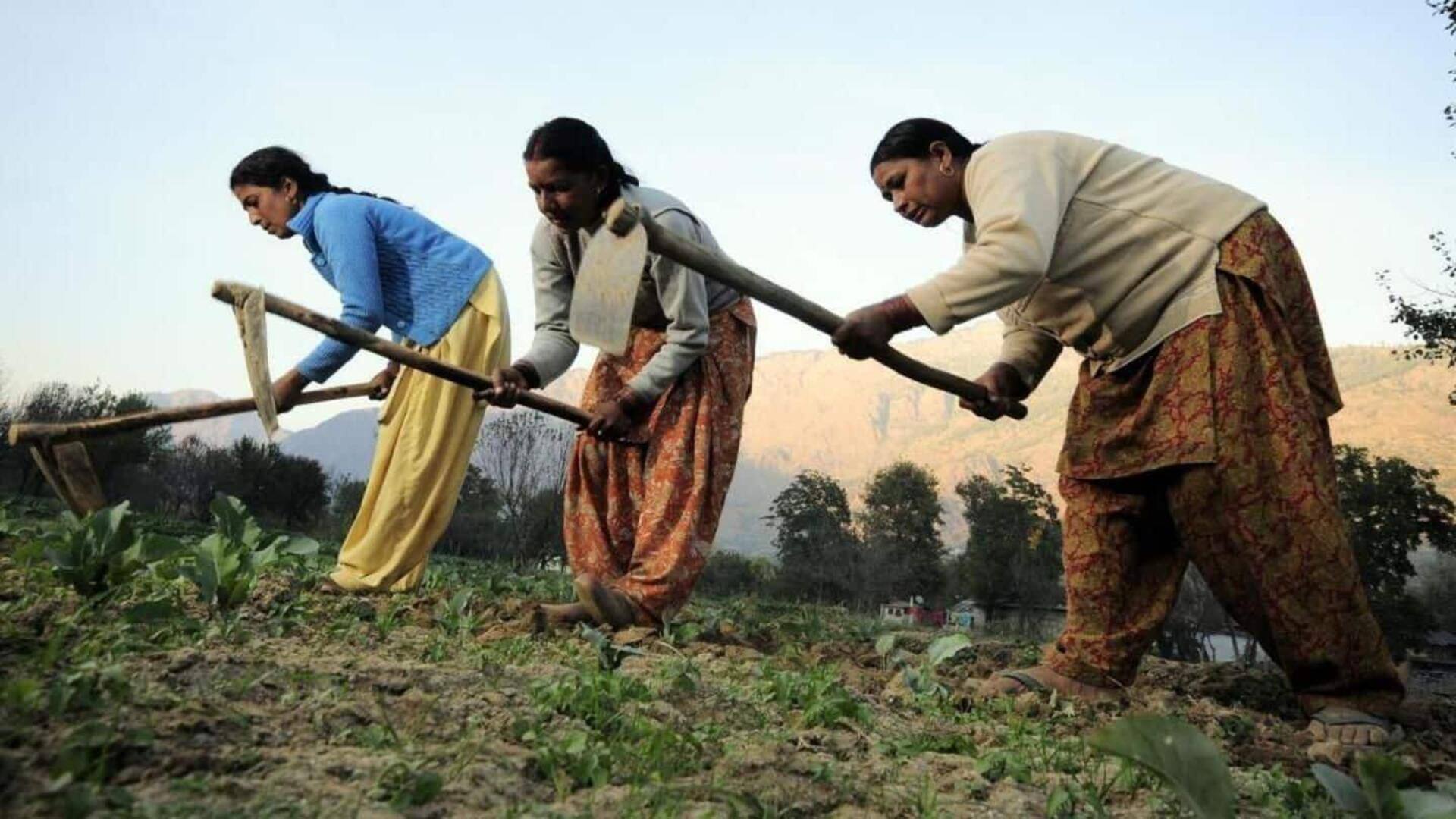
Central government hikes MSP for 6 rabi crops
What's the story
The central government has announced a hike in the Minimum Support Price (MSP) for six Rabi crops for the 2025-26 marketing season.
Union Minister Ashwini Vaishnaw announced that the MSP for wheat has now been hiked by ₹150 to ₹2,425 per quintal, while Barley was hiked by ₹130 to ₹1,980 per quintal.
The decision was taken by the Cabinet Committee on Economic Affairs, headed by Prime Minister Narendra Modi.
Price hike
Details of MSP increase for rabi crops
The support price for gram was hiked by ₹210 to ₹5,650 per quintal.
Lentil (masur) was hiked by ₹275 to ₹6,700 per quintal.
Rapeseed and mustard received the highest hike of ₹300 with an MSP of ₹5,950 per quintal.
Safflower's MSP was hiked by 140₹ to ₹5,940 per quintal.
The hike in MSP is in accordance with the Union Budget 2018-19 announcement to fix MSP at least 1.5 times the All-India weighted average cost of production.
Twitter Post
Check out the chart here
Central Government notifies MSP for 6 crops in Rabi marketing season for 2025-26.
— ANI (@ANI) October 16, 2024
Wheat - Rs 2425 from Rs 2275
Barley - Rs 1980 from Rs 1850
Gram - Rs 5650 from Rs 5440
Lentil - Rs 6700 from 6425
Rapeseed/Mustard - Rs 5950 from Rs 5650
Safflower - Rs 5940 from Rs 5800 pic.twitter.com/Poqn53RtXj
Policy alignment
MSP hike aligns with Union Budget 2018-19 announcement
The anticipated margin over production costs is maximum for wheat at 105%, followed by rapeseed and mustard at 98%, lentil at 89% and both gram and barley at 60%.
Safflower has a margin of 50%.
Apart from the MSP hike, the government has also approved ₹35,000 crore for the PM Annadata Aay Sanrakshan Abhiyan (PM-AASHA).
The initiative seeks to protect farmers from distress sales during peak harvesting times and stabilize market prices.
Infrastructure and allowance
Cabinet approves new rail-road bridge and dearness allowance hike
In other Cabinet decisions, a new rail-road bridge over the Ganges in Varanasi was approved with an investment of ₹2,642 crore.
The bridge will have four railway lines and a six-lane highway. It will reduce congestion and save diesel imports worth ₹638 crore annually.
Further, a three percent increase in dearness allowance for government employees was sanctioned. This will benefit around 49.18 lakh central government employees and 64.89 lakh pensioners.